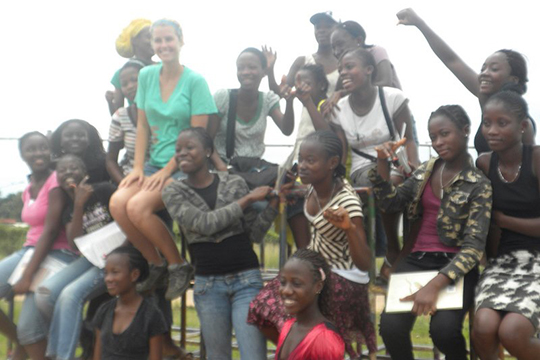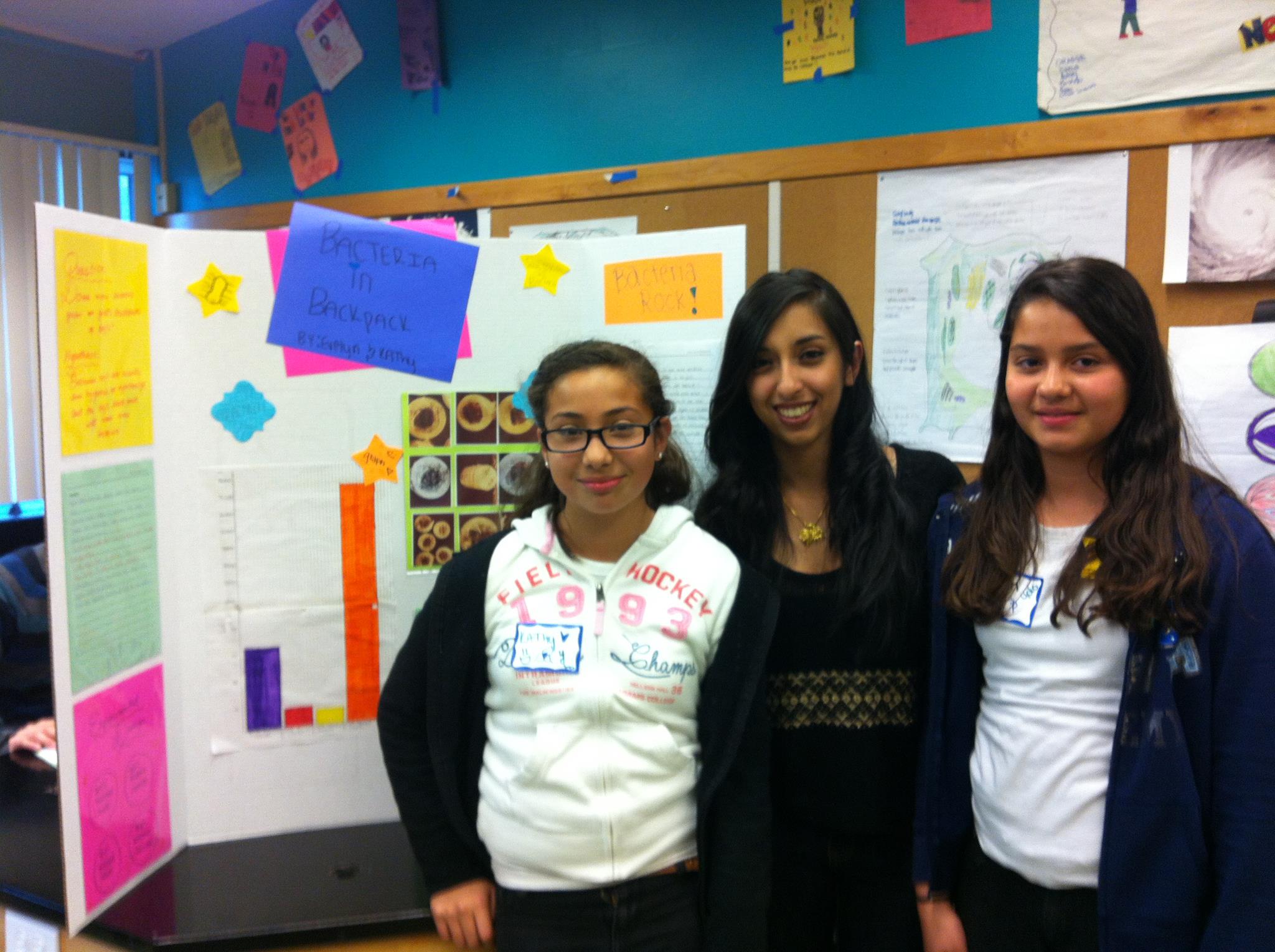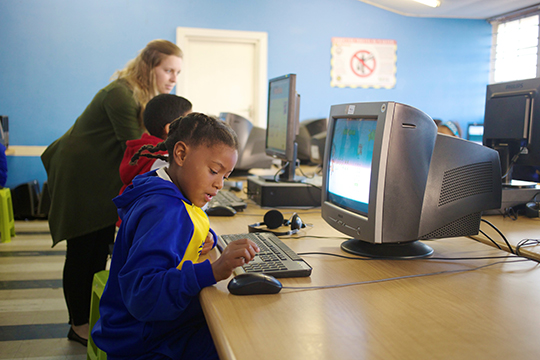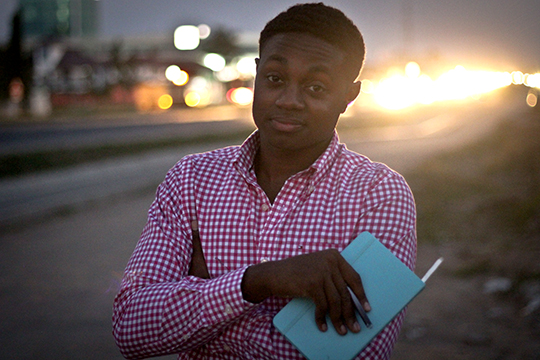
Gillie (in green) with some of her students
By Gillie Collins,’15 (English, International Relations)
The summer after my freshman year, I found myself crushed into a taxi with five other people, heading to my first day of work in Congotown, Liberia. That morning, it rained in torrents, and the roadside markets were eerily empty: the plantains packed up, the vendors hiding under umbrellas. Approaching the Hope Community Center, I worried that no one would turn up for the workshop.
I was wrong. By 10 AM, fifteen girls with damp clothes had trickled into the classroom. As a group, we decided on a name for our collective, and I wrote it on the chalkboard: “Story Society.”
As a Haas Fellow, I spent the summer facilitating the “Story Society,” a writing and reading program for Liberian girls ages 14-19. Using novels to spark group discussions, individual presentations, and creative writing exercises, we kept daily journals and wrote poetry as a group.
At the close of the program, the girls performed their original stories for their friends and family. Again, the clouds burst, the sky emptied itself — but the Hope Community Center filled to capacity. The girls clapped loudly for each other.

By Ritika Dutta, ’15 (Biology)
In my sophomore year, I worked with two middle school students on a project about bacteria. Neither of the girls seemed very interested in the material and both were constantly distracted. In an effort to make the project fun for them and engage them, I suggested that our project be to take bacteria from both girls’ and boys’ backpacks and compare the types and amount of bacteria in each. Immediately, the girls were excited and enthusiastic – they couldn’t wait to figure out whether boys or girls were “dirtier!”
The project was extremely effective in teaching essential scientific concepts, such as how to develop a hypothesis, design an experiment, and analyze data. As I watched the girls proudly and confidently present the project on the last day, I felt immensely proud at their progress – both girls had told me they were extremely shy and had never been able to speak publicly, but after a lot of practice and confidence-building, they did an amazing job and were able to overcome their fears. I hope that the experience helped them realize that science can be fun and interesting and opened the door for future exploration.
By Brandon Hill, ’16 (Public Policy)
This past summer, I served as an intern for UNICEF Tanzania as a Haas Center African Service Fellow. I helped to build a national social media campaign around violence against children called Ukuti Ukuti, filmed a United Nations documentary on early childhood education in Zanzibar, and assessed the impact of UNICEF programs in inland villages in Tanzania. Perhaps my most fulfilling experience was designing and launching UNICEF Tanzania’s first-ever Girl’s Empowerment Forum, partnering with other UN organizations to gather 50 primary school student-leaders to ask live questions of a panel of national policy makers and NGO leaders.
I had the opportunity to talk about development barriers with the leader of the opposition party in Tanzania, Professor Ibrahim Lipumba, Ph.D. ’83, who was also a co-founder of Stanford’s African Student Association in the 1980s. I also heard harrowing stories of leadership from Peter Temu, former economic advisor to the president of Tanzania, and listened to Romana, a young student, tell me how she single-handedly shifted gender norms in her rural village in the mountains of Iringa.
Having imbibed the Swahili culture and worked among the some of the most dynamic people I have ever met, I am energized about the future of East Africa and how I can play a role in its rise.

Morgan teaches a computer literacy class for students at Parkwood Primary School in Cape Town, South Africa, July 2014.
By Morgan Abbett, ’15 (Environmental Engineering, African Studies, and coterm M.S. Environmental Engineering and Science)
Across South Africa, mathematics test scores, secondary school matriculation rates, and youth employment rates are troublingly low. These statistics are, in part, the result of schools’ failure to teach students useful skills and provide personalized education. That is where computers can help. Through Stanford Engineers for a Sustainable World, I have worked for the past year to design a technology center at Parkwood Primary School in Cape Town, an underfunded public school that does not have a long-term computer space or program. Our team is working to build an effective, sustainable technology solution at Parkwood that will improve academic performance and propel students towards greater success in school and future employment. In addition to serving students, the center will provide computer access and training for teachers, parents, and other community members.
Thanks to an African Service Fellowship provided by the Haas Center, I spent several months in Cape Town designing the building, creating the program’s organizational model, teaching computer literacy classes, and working with our partners, an educational enrichment nonprofit called Bottomup, and a South African coding academy called iXperience. The next step is fundraising for the construction of the center. For more information please feel free to reach out to Stanford Engineers for a Sustainable World.




